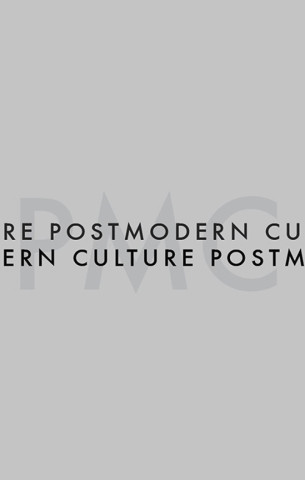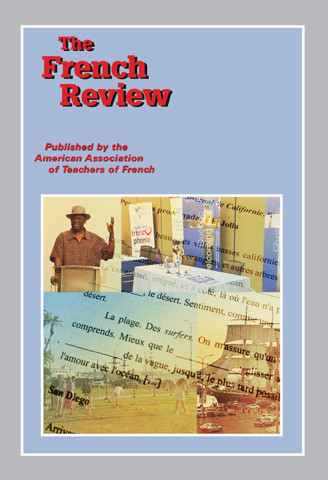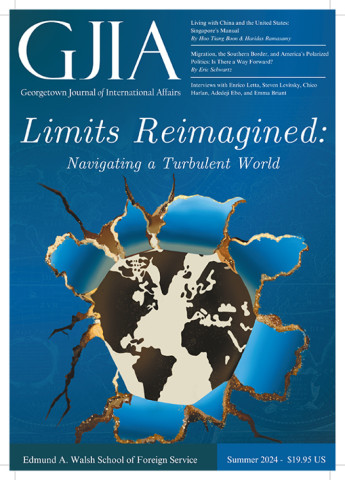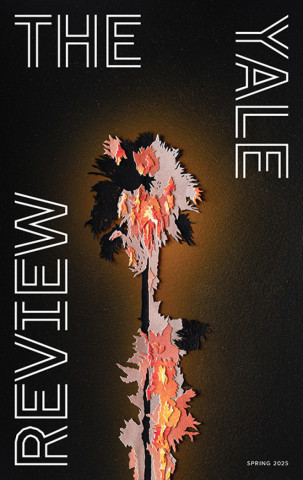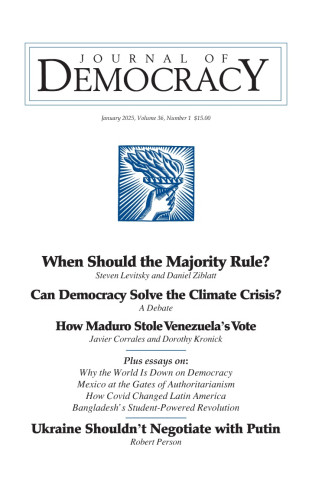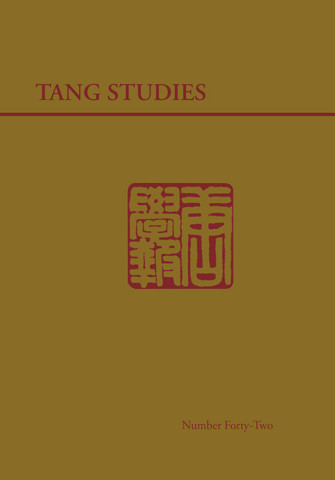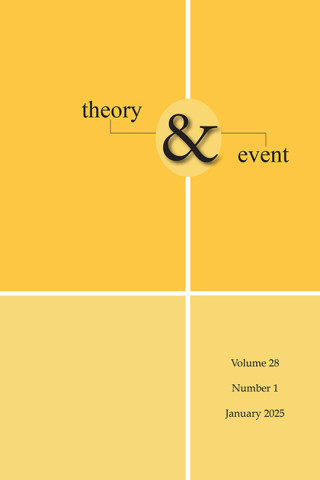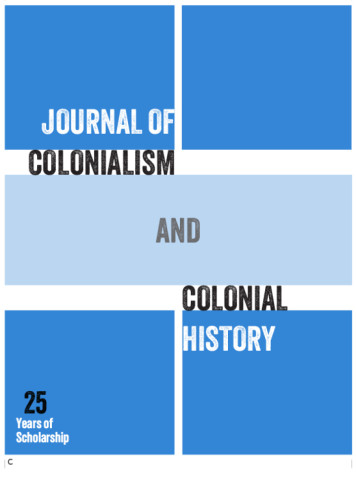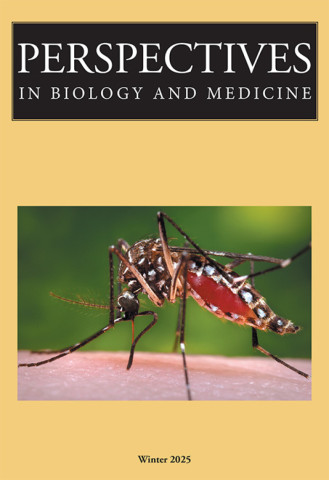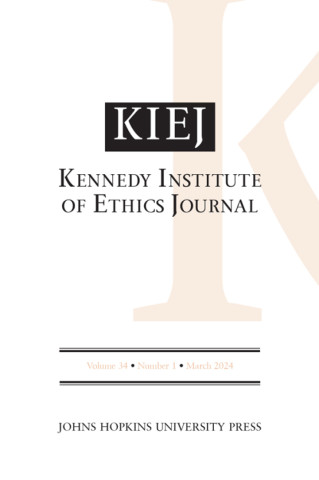

Journal of Health Care for the Poor and Underserved
Journal Details
Online: 1548-6869
The Journal of Health Care for the Poor and Underserved publishes original papers, commentaries, brief communications, reports from the field, columns, and reviews regarding the health of low-income and other medically underserved people. We welcome manuscripts. Though our concerns—health, health policy, and health care for the underserved—are universal, our focus is on North America, Central America, the Caribbean, and sub-Saharan Africa. Questions about the suitability of a topic should be sent to JournalQuestion@mmc.edu. Our mailing address, telephone numbers, and fax number are:
Journal of Health Care for the Poor and Underserved
Meharry Medical College
1005 D. B. Todd Blvd.
Nashville, TN 37208
Phone: 1-800-669-1269 or (615) 327-6819
FAX: (615) 327-6362
Editor: Virginia Brennan, PhD, MA
Checklist for Preparation of Manuscripts
Submission Website
- Visit our submission website at Scholar One/Manuscript Central: http://mc.manuscriptcentral.com/JHCPU.
- Register as an author and follow instructions for manuscript submission.
Cover Letter
- Include a cover letter addressed to the editor with your submission. The cover letter must state that the research has received institutional review board (IRB) approval, when suitable, and that the paper is neither presently under consideration at another publication nor will be while it is under consideration with JHCPU. It also must state that all co-authors have both contributed substantially to the paper and have approved the version being submitted.
Author Contact List
- Include as a separate file a list of all authors (in the order of precedence used on the title page) with their degree abbreviations, titles, and complete contact information.
Abstract and Key Words
- Please retain the abstract and key words in the blinded copy of the manuscript (as well as loading them into the Manuscript Central system when prompted to do so). If possible, use terms from the Medical Subject Headings from Index Medicus for the key words. Abstracts must not exceed 150 words. Summaries (for Reports from the Field) are limited to 50 words.
Writing Style and Format
- Please submit all documents as Word files (rather than as pdfs).
- Double-space throughout.
- Do not use proportional spacing or justified margin.
- Follow the more detailed guidance regarding grammar, style, and usage found on our sheet, Grammar, Style, and Usage in JHCPU.
- If you include any abbreviations in your paper, please list them on the first page.
References
- In the text, refer to each reference with an Arabic number in superscript, without parentheses. Number references consecutively and list the full citations at the end of the text (under the heading References).
- List all authors of cited works when there are three or fewer. Otherwise, list the first three, then et al.
- Use the following formats, based on Index Medicus/PubMed styles:
Journal article (GIVE COMPLETE PUBLICATION DATE PLUS VOLUME AND NUMBER. PubMed citations may be used as a guide):
1. Zuckerman B, Frank DA, Hingson R, et al. Effects of maternal marijuana and cocaine use on fetal growth. N Engl J Med. 1989 Mar 23;320(12):762-8.
Chapter in Book:
2. Morris JN. The last weeks of life: does hospice care make a difference? In: Mor V, Greer DS, Kastenbaum R, eds. The hospice experiment. Baltimore: Johns Hopkins University, 1988.
Government report:
3. National Center for Health Statistics. Health, United States, 1989. (DHHS Pub. no. [PHS] 90-1232.) Hyattsville, MD: U.S. Public Health Service, 1990.
Published conference presentation:
4. Hinman AR. Progress over the last decade. In: Proceedings of the 24th Immunization Conference, Orlando (FL), May 21-5, 1990:17-20. Atlanta: Centers for Disease Control, 1990.
Unpublished conference presentation:
5. McJamerson E, Pearson W Jr. The declining participation of African-American males in higher education: causes and consequences. Presented at: Mid-South Sociological Association Conference, Baton Rouge (LA), Oct 1989.
Material accepted for publication:
6. Hall LE, Callender CO, Yeager CL, et al. Organ donation in blacks. Transpl Proc (In press.)
Other unpublished material (cite in the text but not in the references):
(B. Jones, personal communication)
- Please note: JHCPU accepts Internet urls only as supplementary information. All references must include specification of the published source in the format described above. After a period ending that print citation, a new sentence reading “Available at…” where “… is replaced by the Internet address, may be added. In cases where the printed version is inaccessible, provide a citation modeled on those for print citations (supply the information referred to by words in capital letters here):
- AUTHOR. TITLE of work being cited. LOCATION of organization/publication: ORGANIZATION/PUBLICATION posting the work being cited, YEAR posted. Available at…URL HERE.
- Please note: We prefer that authors do not embed references using automatic reference numbering programs. However, authors may want to use such a program while working on their papers (and only at the end convert them to simple text. RefWorks (but not EndNote) includes the JHCPU/Index Medicus/PubMed citation style.
Specific Guidelines for Specific Types of Papers
The Journal publishes several types of paper, including these primary types:
- Original Papers and Brief Communications: These are empirical research papers, differing in length. Some policy papers also fit into these categories.
- Literature Reviews: These are scholarly reviews of the literature on a given topic; in cases where there is a substantial literature, these must be systematic rather than narrative reviews.
- Commentaries: These are opinion pieces, strongly grounded in the scholarly literature. Some policy papers fit in this category.
- Reports from the Field: These are brief descriptive accounts of innovative policies, clinical practices, and programs, situated as needed in literature on comparable programs and the background to the general issue being addressed.
Guidelines for writing papers of these types, as well as the columns that we publish and book reviews, follow.
1. Original Papers
Empirical research papers, health policy papers, evaluations of innovative or otherwise noteworthy health and health care programs; 2,501-10,000 words of text. N.B.: While we allow research papers and literature reviews as many as 10,000 words of text, rarely does a paper merit that length. If your paper is very long, please edit it as carefully as possible, eliminating redundancy, unnecessarily protracted presentation of background material, and excessive verbiage.
Text
-
- Clearly state the problem or issue at hand, describe past efforts to address it, and specify how the manuscript represents a new contribution to the field.
- Note and discuss policy implications, as appropriate.
- Include brief section headings. Research reports should contain the following sections: Introduction, Methods, Results, Discussion. Omit the Introduction section heading.
- For any subheadings, use the following format:
1st level subheading: Boldface heading (with initial cap only) followed by period run into text.
2nd level subheading: Italicized heading (with initial cap only) followed by period run into text.
In cases where the primary heading, a 1st subheading, and a 2nd subheading all occur in immediate succession, simply follow the same pattern. For example,
Methods
Population studied. Demographic characteristics. The population studied was …
- List any acknowledgments and grant support at the end of the text under a new section heading,
Acknowledgments
- The list of references should follow a section heading, References.
Tables
- Type tables on pages separate from the text. Provide a title and consecutive Arabic numbering for each.
- USE TABS, NOT SPACES, to separate columns when formatting tables. Alternatively, use the table formatting option in Microsoft Word®.
- Tables should be in black and white.
- List source for table, as appropriate.
Figures
- Maps, diagrams, drawings, and figures (bar graphs, pie charts, etc.) must be rendered in sharp detail and appear in black and white.
- Include actual data. For figures that contain percentages, include raw numbers.
- List source for figure, as appropriate.
- Please refrain from using scanned figures, as we are unable to edit them.
Permissions
- Obtain written permission from the copyright holder to use published figures or tables or any other copyrighted material.
Submission
- Submit the original and one copy of the manuscript following the instructions on Scholar One/Manuscript Central.
Review
- Authors are notified promptly when manuscripts are received. Manuscripts that pass an internal review are sent to at least two external reviewers who are experts in the topic area addressed by the paper. Reviewers provide comments to the editor, who relays them to the primary author. Reviews are double-blind (i.e., neither authors nor reviewers know each other’s identity or institutional affiliation).
Copyright
- Accepted manuscripts become the permanent property of the Journal and are not published until all authors have signed a copyright transmittal form and returned to the editor. Authors who assign exclusive copyright to the Journal retain residual copyright to the words and data in their manuscripts. The Journal and publisher usually honor requests to reprint copyrighted material on a limited basis, providing that permission is also obtained from the author(s) and proper credit is given to the source.
Proofs and reprints
- After revisions are completed, primary authors receive galley proofs for review from the publisher, Johns Hopkins University Press. Galleys must be returned with any substantive corrections within the (brief) time frame established by the publisher. Primary authors receive two complimentary copies of the Journal issue in which their work appears and co-authors receive one copy each.
2. Brief Communications
Shorter empirical research papers, health policy papers, evaluations of innovative or otherwise noteworthy health and health care programs; up to 2,500 words of text.
- Above sections on cover letter, abstract and key words, tables, figures, permissions, submission, copyright, and proofs and reprints apply.
3. Literature Reviews
Literature reviews: A literature review is a type of academic/scientific publication that is of great value to scholars who wish to gain a holistic understanding of scholarly literature and findings on any given topic. N.B.: While we allow research papers and literature reviews as many as 10,000 words of text, rarely does a paper merit that length. If your paper is very long, please edit it as carefully as possible, eliminating redundancy, unnecessarily protracted presentation of background material, and excessive verbiage.
It is generally agreed that a systematic review is different from the traditional narrative review in that a systematic review (a) addresses a focused question; (b) involves a comprehensive search of the literature; (c) has explicit inclusion and exclusion criteria for papers included in the review; (d) addresses methodological quality of the papers; and (d) synthesizes results in a systematic way. (Thanks to John Philbrick of UVA for this formulation.)
We prefer systematic literature reviews except in the cases of topics that are inadequately represented in the conventional scholarly literature. The authors should make the case for a looser sort of literature review in the event that they submit one.
Some of the databases researchers might draw on to search the scholarly literature and gray literature (select among these and others, based on topic area):
- Academic Search Premier
- BioMed Central databases
- CCTR: Cochrane Controlled Trials Register, or Cochrane Central Register of Controlled Trials
- Cochrane Database of Systematic Reviews
- CINAHL: Cumulative Index to Nursing and Allied Health
- DARE: International Social Science Directory
- EMBASE: Biomedical answers (Medline + 5 million other records, emphasis on evidence-based medicine)
- ERIC: Education Resources Information Center
- GOOGLE Scholar
- Health Source Nursing/Academic Edition
- PsychARTICLES
- PsychINFO
- PubMed/MedLine
- Science Direct
- Sociological Abstracts
- SPORTDiscus
- Web of Knowledge
4. Commentaries
Commentary on timely or controversial issues, grounded in the relevant scholarly literature; 1,000-4,000 words of text.
- Above sections on cover letter, abstract and key words, permissions, submission, copyright, and proofs and reprints apply.
5. Reports from the Field
This section of the Journal is intended for brief, descriptive papers. These papers may be about a host of different things that we believe will interest our readers — including but not only
- Programs, interventions, innovative practices;
- Understudied issues in public health;
- Efforts to use prior research findings to craft policy and/or practice.
Sometimes, a Report may make reference to program instruments or other materials suggesting the potential for future evaluations. We welcome this. Where applicable, authors should explicitly address future expectations based on this preliminary work: Do, if possible, talk about evaluation design and the time course over which you anticipate change. At the same time, bear in mind that the descriptive Report from the Field is not the place for drawing conclusions about effectiveness or causality: such conclusions may be drawn only on the basis of scientific study that goes well beyond the scope of what is covered in a Report from the Field.
Additionally, authors of Reports from the Field should take care to contextualize their work as much as possible – provide descriptive information about (for example) the demographic profile or history of the population, condition, region, neighborhood, program, or practice that is the topic of the Report.
While still hewing to the highest standards for timeliness and accuracy. Reports are not structured as research papers and do not contain statistical analyses (other than purely descriptive statistics). Innovative and/or newsworthy events especially will interest our readers. Word limit: 2,000 words of text.
- Where applicable, the above sections describe policies and procedures for cover letter, tables, figures, permissions, submission, copyright, and proofs and reprints.
- In place of an abstract, include a summary of the paper’s contents. The summary should be no longer than 50 words. Also include a list of key words. These should appear in the blinded manuscript as well as being loaded onto Manuscript Central (with the summary being loaded in place of an abstract).
6. Heroes and Great Ideas Columns
A column published in the Journal since 2005, Heroes and Great Ideas is a space for telling the stories of people and initiatives that have worked successfully to improve life in medically underserved communities. Styles adopted vary widely and include traditional biographical or historical accounts, essays, and narratives. We welcome submissions to this section, which is reviewed by members of the editorial staff and editorial board. We recommend a limit of 2,000 words.
- Where applicable, the above sections describe policies and procedures for cover letter, tables, figures, permissions, submission, copyright, and proofs and reprints.
7. ACU Columns
The ACU Column originates in the office of the Association of Clinicians for the Underserved. Interested authors should write to the Executive Director of ACU, Craig Kennedy, at ckennedy@clinicians.org .
8. Book Reviews and Other Reviews
Critical summaries of books, reports, videotapes, educational materials, and other materials of interest to our readers; 500-1,500 words. See Scholar One/Manuscript Central site (http://mc.manuscriptcentral.com/JHCPU) for current list of books available from the Journal office for review.
- Above sections on cover letter, permissions, submission, copyright, and proofs and reprints apply. Authors receive a complimentary copy of the Journal issue in which their work appears.
- Assess the contributions of the material being reviewed to the broad field of health care for the poor and underserved.
- Summarize the salient features of the work; assess its accuracy, readability, completeness, biases, and important omissions; and suggest an audience that might find the work useful.
Thank you for your interest in the Journal of Health Care for the Poor and Underserved.
The Hopkins Press Journals Ethics and Malpractice Statement can be found at the ethics-and-malpractice page.
Peer Review Policy
Manuscripts that pass an internal desk review (for suitability) are sent to at least two external reviewers who are experts in the topic area addressed by the paper. Reviewers provide comments to the editor, who relays them to the primary author. Reviews are double-blind (i.e., neither authors nor reviewers know each other’s identity or institutional affiliation), and we ask all reviewers to evaluate the manuscript bearing in mind the following considerations: Importance of subject to the welfare of poor and underserved communities, appropriateness of study design (for research papers), strength of evidence supporting conclusions, and clarity.
Editor
Virginia M. Brennan, PhD, MA
Editorial Assistants
Robin Griffin
Jannie Frierson
Editorial Board
David Baines, M.D.
Past President of the Association of American Indian Physicians; Family Practitioner, Tlingit and Tsimpsian tribes, AK
Claudia R. Baquet, M.D., M.P.H.
Professor, University of Maryland–School of Medicine (Ret.)
Gillian R. Barclay, D.D.S., M.P.H., Dr.PH.,
VP, Global Public Health and Scientific Affairs, Colgate Palmolive.
Carl Bell, M.D.
Director of Institute for Juvenile Research, University of Illinois at Chicago, Chicago, IL
James Blumstein, L.L.B.
Vanderbilt University Law School, University Professor of Constitutional Law and Health Law and Policy; Director, Health Policy Center, Vanderbilt Institute for Public Policy Studies, Nashville, TN
William P. Brandon, Ph.D., M.P.H., C.P.H.
Metrolina Medical Foundation Distinguished Professor of Public Policy, Emeritus; Political Science & Public Administration Department, Public Policy Ph.D. Program, University of North Carolina–Charlotte, Charlotte, NC
Robert D. Bullard, Ph.D.
Dean, Barbara Jordan-Mickey Leland School of Public Health, Texas Southern University, Houston, TX
Moon S. Chen, JR., Ph.D., M.P.H.
Professor, Associate Director, Population Research and Cancer Disparities, Cancer Center, University of California at Davis, Davis, CA
Glenn Flores, M.D.
Department of Pediatrics, University of Miami Miller School of Medicine
David Harrowe, J.D., M.D.
Gila River Indian Reservation, Department of Public Health, Gila River Indian Community, Sacaton, AZ
Edith Irby Jones, M.D.
Past President, National Medical Association, Houston, TX
Wilbert C. Jordan, M.D., M.P.H.
Medical Director, OASIS Clinic and AIDS Program and AIDS Institute, Martin Luther King/Drew Medical Center, Los Angeles, CA
Paul J. Kaye, M.D., EVP
Senior Vice President for Clinical Affairs, Association of Clinicians for the Underserved
Rosalyn C. King, Pharm.D., M.P.H.
Director, Office of International Programs, School of Continuing Education, Howard University, Silver Spring, MD
Robert S. Levine, M.D., M.S.P.H.
Baylor College of Medicine, Houston, TX
Maria Fatima de Lima, Ph.D.
Associate Dean for Research, City University of New York School of Medicine
Vickie M. Mays, M.S.P.H., Ph.D.
Professor of Psychology and Health Services, University of California, Los Angeles, Director, UCLA Center on Research Education, Training and Strategic Communication on Minority Health Disparities, Los Angeles, CA
Anna McPhatter, Ph.D., L.C.S.W.
Dean of the School of Social Work, Morgan State University, Baltimore, MD
Kyu Bak Rhee, M.D., M.P.P.
Senior Vice President, CVS Health and Chief Medical Officer, Aetna
Robert G. Robinson, M.S.W., Dr.P.H.
Associate Director of Health Equity, Office on Smoking and Health, Centers for Disease Control and Prevention, Atlanta, GA
Patricia Rodney, R.N., M.P.H., Ph.D.
Director, Master of Public Health Program and Associate Professor/International Health Track Coordinator, Department of Community Health and Preventive Medicine, Morehouse School of Medicine, Atlanta, GA
George W. Taylor, D.M.D., M.P.H., Dr.PH.
Associate Professor of Cardiology, Restorative Sciences and Endodontics, School of Dentistry, University of Michigan, Ann Arbor, MI
Bailus Walker, JR., Ph.D.
In memoriam.
Rueben C. Warren, D.D.S., M.P.H., Dr.PH.
Director, National Center for Bioethics, Tuskegee University, Tuskegee, AL
Ruth Enid Zambrana, Ph.D.
Professor, Department of Women’s Studies, Director, Consortium on Race, Gender,and Ethnicity, University of Maryland College Park, Adjunct Professor, Department of Family Medicine ,School of Medicine,University of Maryland Baltimore
Ed Zuroweste, M.D.
Medical Director, Migrant Clinicians Network, State College, PA
Theme: Research Findings on Food Access, Nutrition Security, and Health Outcomes
Background on Supplemental Issue and Sponsor: JHCPU is pleased to announce a supplemental issue on research findings on food access, nutrition security, and associated health outcomes to be published in November 2024. We hope you will find the questions posed by such a topic of interest. If you have work you would like to have considered for the supplemental issue, please submit an abstract no later than February 5th, 2024. Details below and attached.
Instacart is working together with the Journal of Health Care for the Poor and Underserved to produce a supplemental issue dedicated to innovative research, impacts, and lessons learned from research focused on advancing food access and nutrition security to improve health outcomes. In support of this goal, researchers from academia, industry, government, and community-based organizations are invited to submit abstracts of 350 words or less. Original research must focus on the intersection of food access, nutrition security, and health outcomes. The organizing committee will review the abstracts and issue invitations to submit full papers to those chosen.
Message from the Sponsor: On behalf of the sponsor, Instacart, the Journal of Health Care for the Poor and Underserved issues a Call for Abstracts on the topic of Research Findings on Food Access, Nutrition Security, and Health Outcomes. Nutrition security is defined by the USDA as “consistent and equitable access to healthy, safe, affordable foods'' for health and wellbeing. Additionally, the issue will identify potential directions for future work about the issue theme. Inadequate access to healthy, nutritious food is a challenge faced by millions of people and is related to increased prevalence of chronic disease and high health care costs. These challenges have a more severe impact on some groups, including Black and Hispanic households, urban and rural communities, and families living below the poverty line. As a result, the scope of the supplemental issue is guided by the following:
- Identifying research examples that address food access and nutrition security in relation to health outcomes, particularly among historically marginalized communities.
Notes: Abstracts should be blinded and no longer than 350 words long. The authors should include a title and list of 5 keywords (title and keywords will not count toward the word count of the abstract). Please submit abstracts to JournalAdministration@mmc.edu no later than midnight ET, February 5th, 2024.
Instacart is the leading grocery technology company in North America. As a company at the center of millions of people’s relationship with what they eat, Instacart supports research and policy in the following areas:
- modernizing food assistance programs to increase equitable access to nutritious food,
- increasing the availability of affordable, nutritious food in underserved urban and rural areas, and
- providing equitable access to medically tailored groceries and food prescription programs.
Abstracts in the following areas, as well as others meeting the general issue theme, are welcome. Please note that papers providing examples of programs preferably will include outcomes data and evaluations or plans for evaluation. Comprehensive literature reviews will also be considered.
- Research examples of food as medicine, food prescription, food stipend, and medically tailored groceries intervention programs, and evaluations conducted from an equity lens
- Research examples of public/private partnership collaborations focused on promoting food access, nutrition, and food as medicine approaches particularly among underserved communities
- Research examples that use community-based participatory research frameworks to advance food access and food as medicine
- Research examples that catalyze the modernization of food assistance programs (e.g., Supplemental Nutrition Assistance Program and The Special Supplemental Nutrition Program for Women Infants and Children) to increase equitable access to nutritious food
- Studies that include partnerships with brick-and-mortar or online grocery delivery with a focus on improving health outcomes
- Studies that investigate the role of grocery delivery and/or technology in food as medicine programs
- Studies that investigate the impact of food as medicine programming on diet-related chronic conditions, maternal and child health, mental/behavioral health, aging populations, and their caregivers
- Studies that investigate the impact of the above both during and post-intervention
- Studies that explore the inclusion of cultural foods and eating preferences as part of food as medicine programming and/or examination of health outcomes
- Research that explores use of consumer tools such as nutrition labels/tags, nutrition curriculum/meal planning tools, recipe integration, and incentives, in improving health outcomes
- Research that provides recommendations on health outcomes to measure food as medicine dosage, frequency amounts, and scalability of best practices
- >Research examples of cost analyses that quantify cost savings and improved health outcomes because of effective food as medicine efforts
- Evaluations of local/state/national government institutions working together with academic researchers or industry to advance food as medicine efforts
- Lessons learned and best practices for successful public-private partnerships to advance food access, nutrition security, and health
- Discussion of how funders can support food access, nutrition security, and food as medicine efforts
- Other abstracts fitting the scope as defined above
Send books for review to:
Journal of Health Care for the Poor and Underserved
Meharry Medical College
1005 D. B. Todd Blvd.
Nashville, TN 37208
Please send book review copies to the address above. Review copies received by the Johns Hopkins University Press office will be discarded.
Books Recently Received
Following is a list of books that have recently become available for review. We welcome readers with suitable expertise to serve as reviewers. If one of these titles interests you, please e-mail JournalBooks@mmc.edu, telling us you would like to review it and briefly explaining your interest. If you know of a book that would be suitable for review in JHCPU that we have not listed on this page (or in past issues), please let us know that as well. Thank you in advance for your help. We welcome review copies from publishers of books in the area of health and health care for underserved populations, especially in the United States. Publishers are asked to send two review copies.
- Bernier L. Justice in genetics: intellectual property and human rights from a cosmopolitan liberal perspective. Northampton, MA: Edward Elgar Publishing, 2010. (Received at JHCPU Aug. 2010)
- Beyrer C, and Pizer HF, (eds). Public health and human rights; evidence-based approaches. Baltimore, MD: The Johns Hopkins University Press, 2007.
- Delgado JL. The Latina guide to health: consejos and caring answers. New York, NY: Newmarket Press, 2010. (Received at JHCPU Feb. 2010)
- Dorling D. Injustice: why social inequality persists. Portland, OR: The Policy Press, 2010. (Received at JHCPU Jul. 2010)
- Foley EE. Your pocket is what cures you: the politics of health in Senegal. New Brunswick, NJ: Rutgers University Press, 2010. (Received at JHCPU Jan. 2010)
- Fox DM. The convergence of science and governance: research, health policy, and American states. Berkeley, CA: University of California Press, 2010. (Received at JHCPU Feb. 2010)
- Gusmano MK, Rodwin VG, Weisz D. Health care in the world cities: New York, Paris, and London. Baltimore, MD: The Johns Hopkins University Press, 2010. (Received at JHCPU Jul 2010)
- Hemenway D. While we were sleeping: success stories in injury and violence prevention. Los Angeles, CA: University of California Press, 2009. (Received at JHCPU May 2009)
- Hudson RB. The new politics of old age policy (2nd ed.). Baltimore, MD: The Johns Hopkins University Press, 2010. (Received at JHCPU Jul 2010)
- Institute of Medicine. A review of the HHS family planning program: mission, management, and measurement of results. Washington, DC: The National Academies Press, 2009. (Received at JHCPU Aug. 2009)
- Institute of Medicine. The future of disability in America. Washington, DC: The National Academies Press, 2007.
- Kluchin RM. Fit to be tied: sterilization and reproductive rights in America, 1950-1980. New Brunswick, NJ: Rutgers University Press, 2010. (Received at JHCPU Jan. 2010)
- Picard A. Making the American mouth: dentists and public health in the twentieth century. New Brunswick, NJ: Rutgers University Press, 2009. (Received at JHCPU Jul. 2009)
- Rosenberg CE. Our present complaint: American medicine, then and now. Baltimore, MD: The Johns Hopkins University Press, 2010. (Received at JHCPU Jul 2010)
- Siena KP. Venereal disease, hospitals and the urban poor: London’s “foul wards,” 1600- 1800. Rochester, NY: University of Rochester Press, 2004 (Reprinted in paperback and transferred to digital printing 2010) (Received at JHCPU Sep. 2010)
- Solimeo S. With shaking hands: aging with Parkinson’s disease in America’s heartland. New Brunswick, NJ: Rutgers University Press, 2009. (Received at JHCPU Jul. 2009)
- Switzer JV. Disabled rights: American disability policy and the fight for equality. Washington, DC: Georgetown University Press, 2003. (Received at JHCPU Jan. 2009)
- The Staff of the Washington Post. Landmark: the inside story of America’s new Health-care law and what it means for us all. New York, NY: Public Affairs, 2010. (Received at JHCPU May 2010)
- Ward F. On duty: power, politics, and the history of nursing in New Jersey. Piscataway, NJ: Rutgers University Press, 2009. (Received at JHCPU May 2009)
Abstracting & Indexing Databases
- Clarivate Analytics
- Current Contents
- Web of Science
- EBSCOhost
- Abstracts in Social Gerontology, 1/1/1993-5/1/2003
- CINAHL Complete, 2/1/2001-
- CINAHL Database (Cumulative Index to Nursing & Allied Health Literature), 2/1/2001-
- CINAHL Plus, 2/1/2001-
- Current Abstracts, Jan.2000-Feb.2005
- Family & Society Studies Worldwide, 1/1/1990-11/1/2008
- Human Resources Abstracts, 6/1/1990-
- PsycINFO, 1990-, dropped
- Social Work Abstracts (Online)
- SocINDEX, 9/1/1990-8/1/2001
- SocINDEX with Full Text, 9/1/1990-8/1/2001
- Violence & Abuse Abstracts, 2/1/1994-37134
- Women's Studies International, 6/1/1990-1/1/2008
- Elsevier BV
- EMBASE
- Scopus, 1990-
- E-psyche
- National Library of Medicine
- PubMed
- OCLC
- ArticleFirst, vol.1, no.1, 1990-vol.22, no.5, 2011
- Electronic Collections Online, vol.1, no.1, 1990-vol.22, no.5, 2011
- Periodical Abstracts, v.7, n.1, 1996-v.21, n.2, 2010
- PsycFIRST, vol.12, no.1, 2001-vol.20, no.3, 2009
- Sociological Abstracts (Online), Selective
- Ovid
- PsycINFO, 1990-, dropped
- Social Work Abstracts (Online)
- Personal Alert (E-mail)
- ProQuest
- Agricultural & Environmental Science Database, 1/1/1996-
- ASSIA (Online) (Applied Social Sciences Index & Abstracts), Core
- Black Studies Periodicals Database, 1996-
- Consumer Health Database, 01/01/1996-
- Environmental Science Collection, 01/01/1996-
- Health & Medical Collection, 1/1/1996-
- Health Research Premium Collection, 1/1/1996-
- Healthcare Administration Database, 01/01/1996-
- Hospital Premium Collection, 1/1/1996-
- Medical Database, 1/1/1996-
- Natural Science Collection, 1/1/1996-
- Nursing & Allied Health Database, 1/1/1996-
- PAIS Index (Public Affairs Information Service), Selective
- Professional ProQuest Central, 01/01/1996-
- ProQuest 5000, 01/01/1996-
- ProQuest 5000 International, 01/01/1996-
- ProQuest Central, 01/01/1996-
- ProQuest SciTech Collection, 1/1/1996-
- Psychology Database, 1/1/1996-
- PsycINFO, 1990-, dropped
- Public Health Database, 01/01/1996-
- Research Library, 01/01/1996-
- SciTech Premium Collection, 01/01/1996-
- Social Science Premium Collection, 01/01/1996-
- Social Services Abstracts, Selective
- Sociological Abstracts (Online), Selective
- Sociology Collection, 1/1/1996-
- Sociology Database, 01/01/1996-
- Sage Publications, Inc.
- Abstracts in Anthropology (Online)
- U.S. National Library of Medicine
- MEDLINE
Abstracting & Indexing Sources
- Abstracts of Research in Pastoral Care and Counseling (Ceased) (Print)
- Family Index (Ceased) (Print)
- Hospital and Health Administration Index (Ceased) (Print)
- Index Medicus (Ceased) (Print)
- International Nursing Index (Ceased) (Print)
- Psychological Abstracts (Ceased) (Print)
- Social Planning - Policy & Development Abstracts (Ceased) (Print
Source: Ulrichsweb Global Serials Directory.
1.2 (2023)
1.6 (Five-Year Impact Factor)
0.00394 (Eigenfactor™ Score)
Rank in Category (by Journal Impact Factor):
99 of 118 journals, in “Health Policy & Services”
317 of 403 journals, in “Public, Environmental & Occupational Health”
© Clarivate Analytics 2024
Published quarterly
Readers include: Health professionals, health care administrators, sociologists, economists, social workers, public policy makers, and legislators
Print circulation: 82
Print Advertising Rates
Full Page: (4.75 x 7.5”) – $575.00
Half Page: (4.75 x 3.5”) – $431.00
2 Page Spread – $863.00
Print Advertising Deadlines
February Issue – December 15
May Issue – March 15
August Issue – June 15
November Issue – September 15
Online Advertising Rates (per month)
Promotion (400x200 pixels) – $431.00
Online Advertising Deadline
Online advertising reservations are placed on a month-to-month basis.
All online ads are due on the 20th of the month prior to the reservation.
General Advertising Info
For more information on advertising or to place an ad, please visit the Advertising page.
eTOC (Electronic Table of Contents) alerts can be delivered to your inbox when this or any Hopkins Press journal is published via your ProjectMUSE MyMUSE account. Visit the eTOC instructions page for detailed instructions on setting up your MyMUSE account and alerts.
Also of Interest
Hopkins Press Journals

